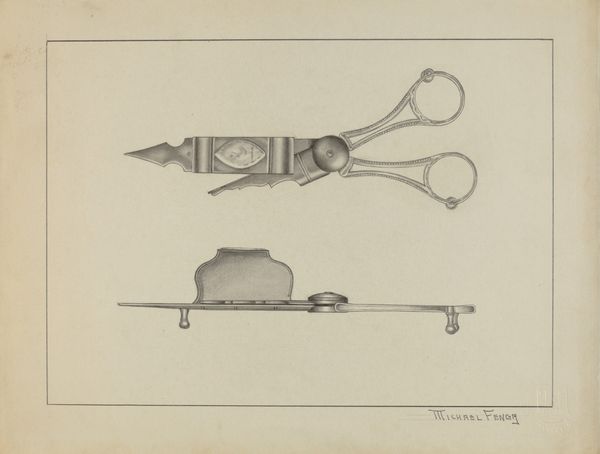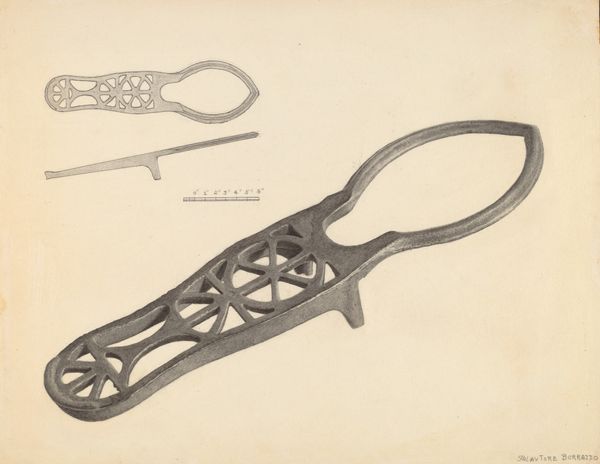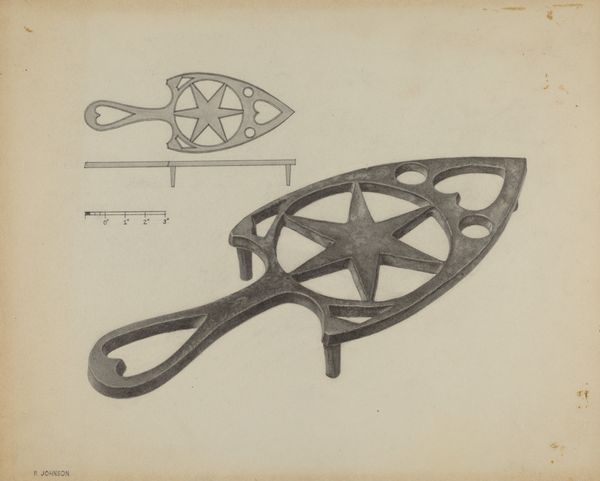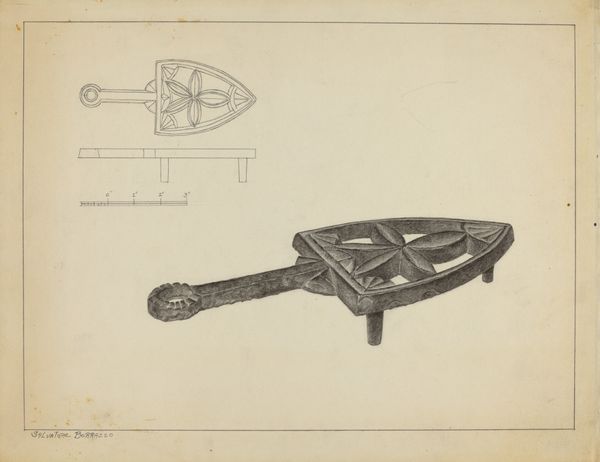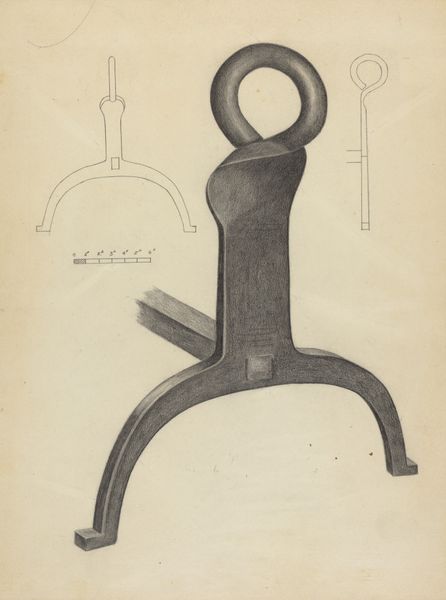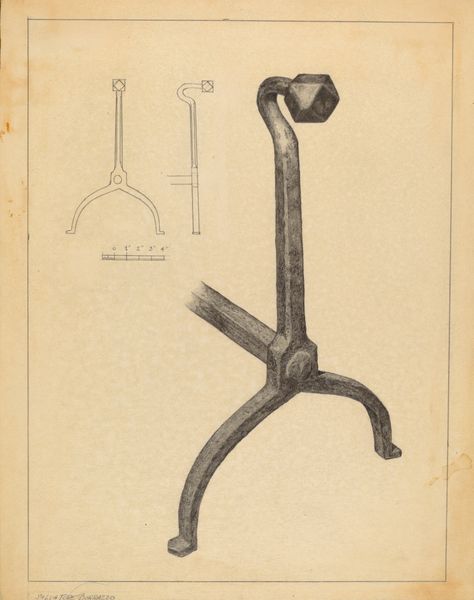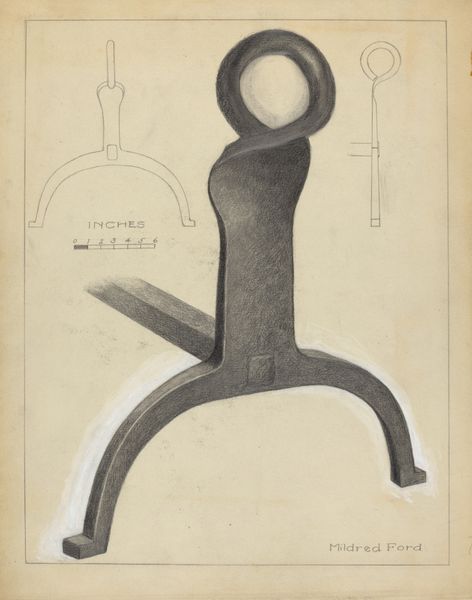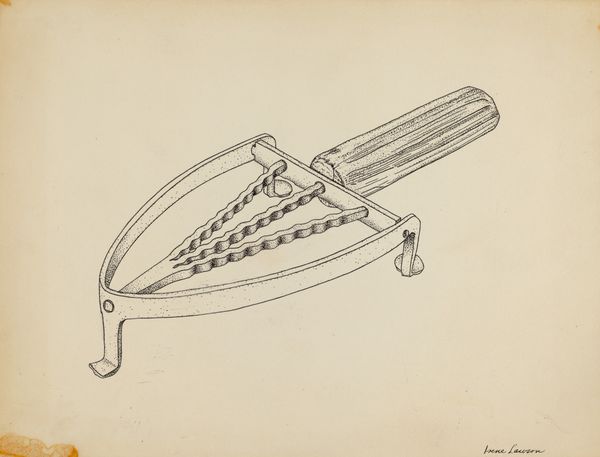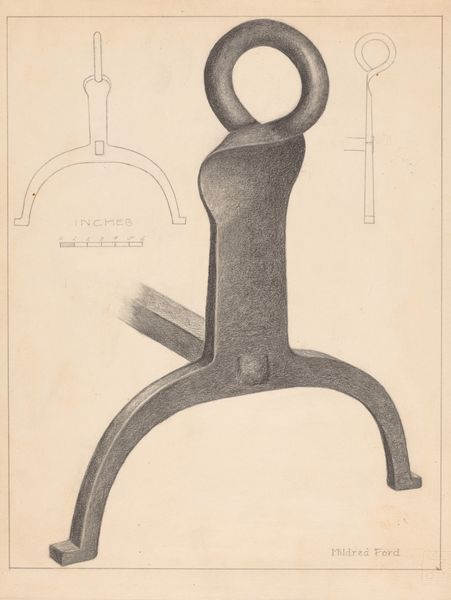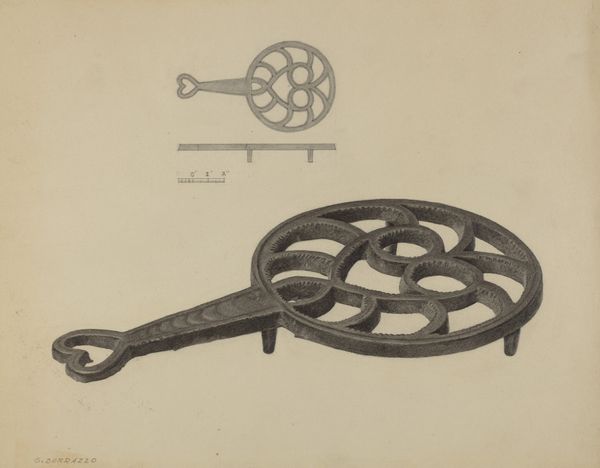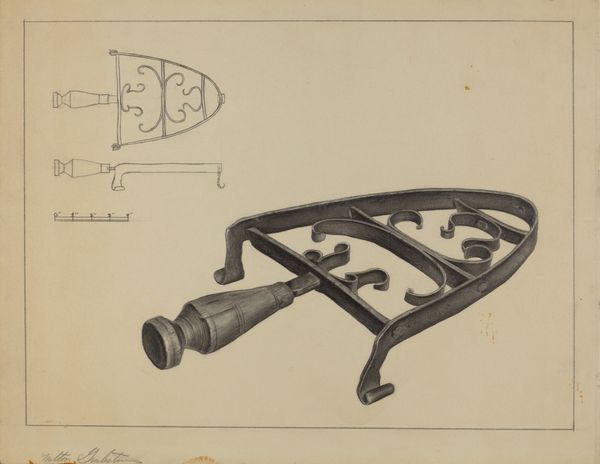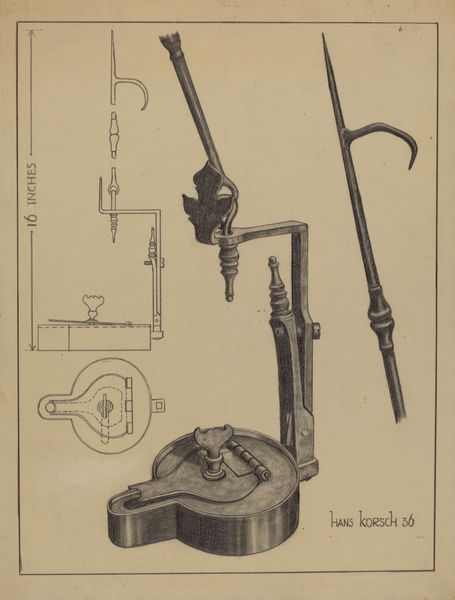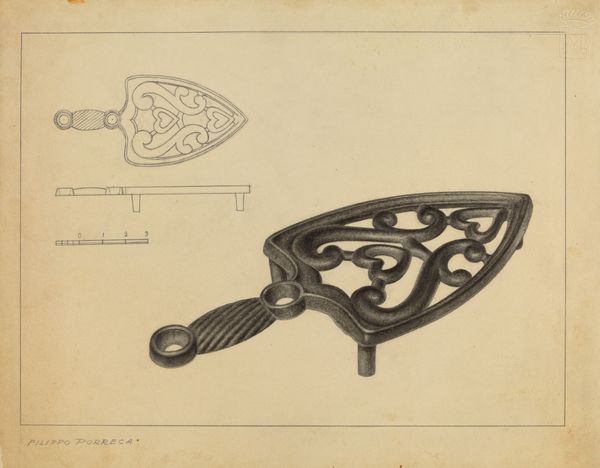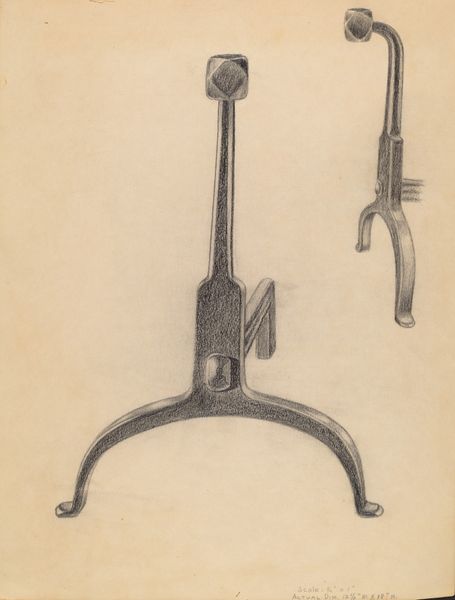
drawing, pencil
#
pencil drawn
#
drawing
#
aged paper
#
toned paper
#
light pencil work
#
pencil sketch
#
old engraving style
#
caricature
#
personal sketchbook
#
geometric
#
pencil
#
sketchbook drawing
#
portrait drawing
Dimensions: overall: 28.9 x 22.7 cm (11 3/8 x 8 15/16 in.) Original IAD Object: 11 3/4" long; 4 1/2" wide
Copyright: National Gallery of Art: CC0 1.0
Curator: This drawing, titled "Flat Iron Holder," was created circa 1936 by Herman Bader. It's a detailed pencil sketch, seemingly pulled right from the artist's sketchbook, showcasing a practical household object with unexpected elegance. Editor: My first impression is how beautiful a mundane object is rendered. It has the solemn quality of an engraving; the kind you'd find documenting artifacts in an old journal. But look closer and the flourishes remind us not every tool has to be purely utilitarian; sometimes beauty finds its way in. Curator: Exactly. Bader elevates the everyday. This work prompts us to consider the societal role of design in even the most ordinary items. The flat iron holder wasn't just a tool; it reflected the design sensibilities and material culture of its time. Its decoration is suggestive of wider social themes like gendered labour in a period of economic constraint. Editor: And look at how much detail he captures, not just in the object itself but in the suggestion of weight and materiality through shadow. This attention, this careful observation, becomes an act of valuing women's work. This suggests, subtly, the importance of seeing the labor performed within domestic space, not as a neutral background, but rather as a significant context in constructing our idea of what a gendered division of labor is, and that this vision in this sketch is an argument to take them seriously as material subjects in historical studies. Curator: Considering the era, you are spot on; his decision to document this object likely stemmed from his personal connection to its users and its wider significance as representing changing trends in early modern design and labor. It speaks volumes about artistic choices. It would be easy to make a pencil sketch, yet we see light work to create the portrait drawing, making this flat iron more than the materials that compose the real article, making this an idea that carries into social and material labor for women. Editor: It pushes me to think about all the stories embedded in ordinary tools, of hidden narratives. This artwork brings questions about who creates, who consumes, who labours and whose contribution ends up written into what passes for the mainstream record of human activity, opening those channels for those normally locked outside such considerations. Curator: A perfect encapsulation of Bader's thoughtful portrayal of an overlooked object, don’t you think? Editor: Agreed. And I wonder, now, how different artists have tackled similar themes.
Comments
No comments
Be the first to comment and join the conversation on the ultimate creative platform.
